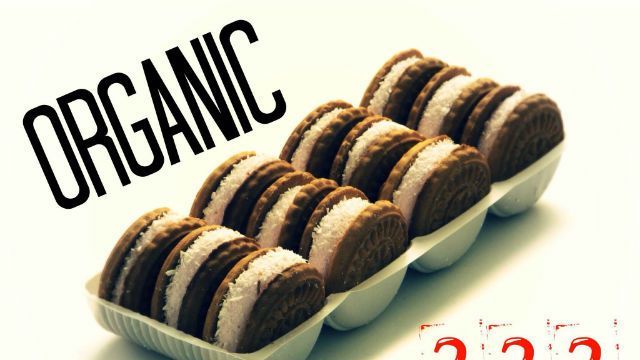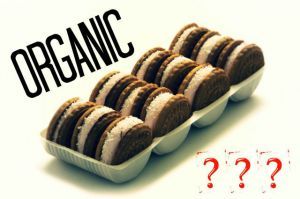
Here at The Alternative Daily, we talk a lot about the benefits of choosing organic – and for good reason.
The USDA Certified Organic label means we can rest assured that the food in question has not been raised with the use of pesticides, genetic modifications, unnecessary antibiotics and growth hormones.
While this assurance is crucially important to the safety of our food, there is one point we need to clarify: an organic processed food is still a processed food, and while organic varieties of these foods may be safer in some ways, they still are not a choice beneficial to optimal health.
With the rise of consumer demand for organic products, unfortunately there has been a corresponding increase in the demand for organic junk foods. Many people feel justified eating chips, boxed baked goods, pizzas and cereals because of the sheer fact that they are organic. However, what some people may not know is that organic processed foods have many of the same pitfalls as conventional processed products.
Last winter, we reported on an investigation by Mark Kastel, Senior Farm Policy Analyst at the Cornucopia Institute, an “organic industry watchdog” based in Cornucopia, Wisconsin. Kastel reveals that over 100 synthetic or non-organic additives are currently approved by the USDA for use in organic foods.
A few of these sneaky additions include synthetic solvents such as isopropyl alcohol, genetically modified DHA and ARA oils, sugar alcohol mannitol, glucose syrup solids, highly processed versions of natural foods that no longer resemble what was found in nature at all, plus “undisclosed” industry secret ingredients. While it may seem shocking or even unbelievable that organic foods contain these substances, a bit of independent research will confirm this if you are skeptical.
Kastel also points a finger at carrageenan, a seaweed derivative which is very common on many processed organic food labels. While technically made from a natural food, carrageenan is often processed to the point where it is unrecognizable. Kastel also states that up to 25 percent of carrageenan on the shelves is degraded, and adds:
“Degraded carrageenan causes inflammation and can cause serious intestinal abnormalities. Degraded carrageenan is also considered a possible carcinogen, and it’s in organic foods!”
Another reason to stay away from any processed foods, including organics, is the inherent danger of the processing methods themselves. In large scale manufacturing operations, including organic ones, contamination can occur during many stages of the process.
In 2009, The New York Times reported on salmonella outbreaks in Georgia and Texas tied to peanut products. Some of the products implicated were organic peanut butter bars, which were found to be contaminated with mold, bird droppings and showed signs of rodent infestation.
Aside from this highly disturbing point, there is the simple fact that an organic unhealthy food is still unhealthy. Organic sugar still comes with all of the dangers of sugar itself, including the heightened risk of obesity, diabetes, inflammation and compromised immune system function. It is still an addictive, debilitating substance, even though it is organic. The same goes for organic whole wheat .
When it comes to fruits, vegetables, dairy and meats, the organic label is important. Buying organic produce ensures that your ingredients have not been exposed to dangerous toxic chemicals (or genetically modified) as they were grown. Organic, grass-fed meats, milk and cheeses are key because the animals have not been pumped full of growth hormones and fed GMO feeds before they reached your plate. Once these ingredients are processed in a factory, however, many bets are off as far as health and safety are concerned.
The main problem surrounding organics is our mindset. We see that something says organic and automatically assume it is healthy. Unfortunately, aggressive marketing by the processed food industry caters to this higher health awareness and is often able to bamboozle us.
In order to enjoy a truly healthy lifestyle, we need to get back in the mindset of whole foods that we buy or grow in their natural form, and then cook and prepare ourselves. We need to get back to our roots instead of favoring convenience over true nutrition.
 Don’t buy into the organic junk food craze and assume that the label will keep you safe. Make sure to be choosy even within the organic spectrum, and stay true to REAL foods. The words “organic” and “processed” do not belong in the same sentence.
Don’t buy into the organic junk food craze and assume that the label will keep you safe. Make sure to be choosy even within the organic spectrum, and stay true to REAL foods. The words “organic” and “processed” do not belong in the same sentence.
-The Alternative Daily

